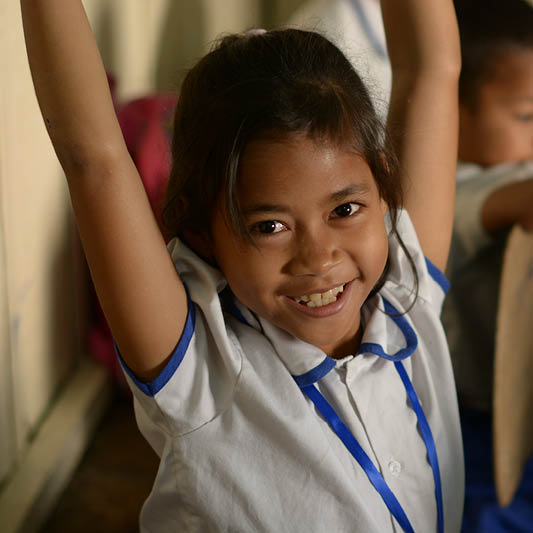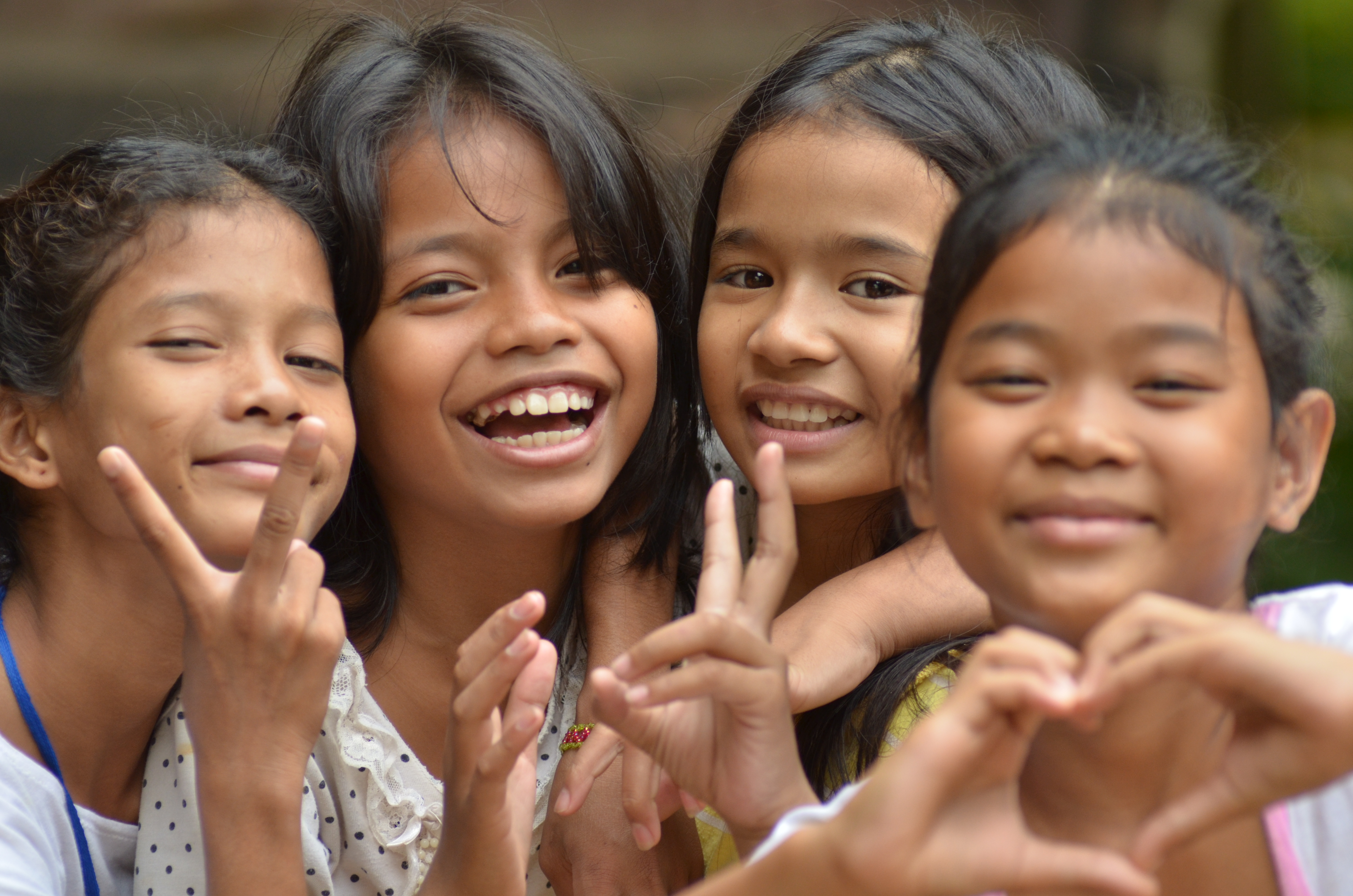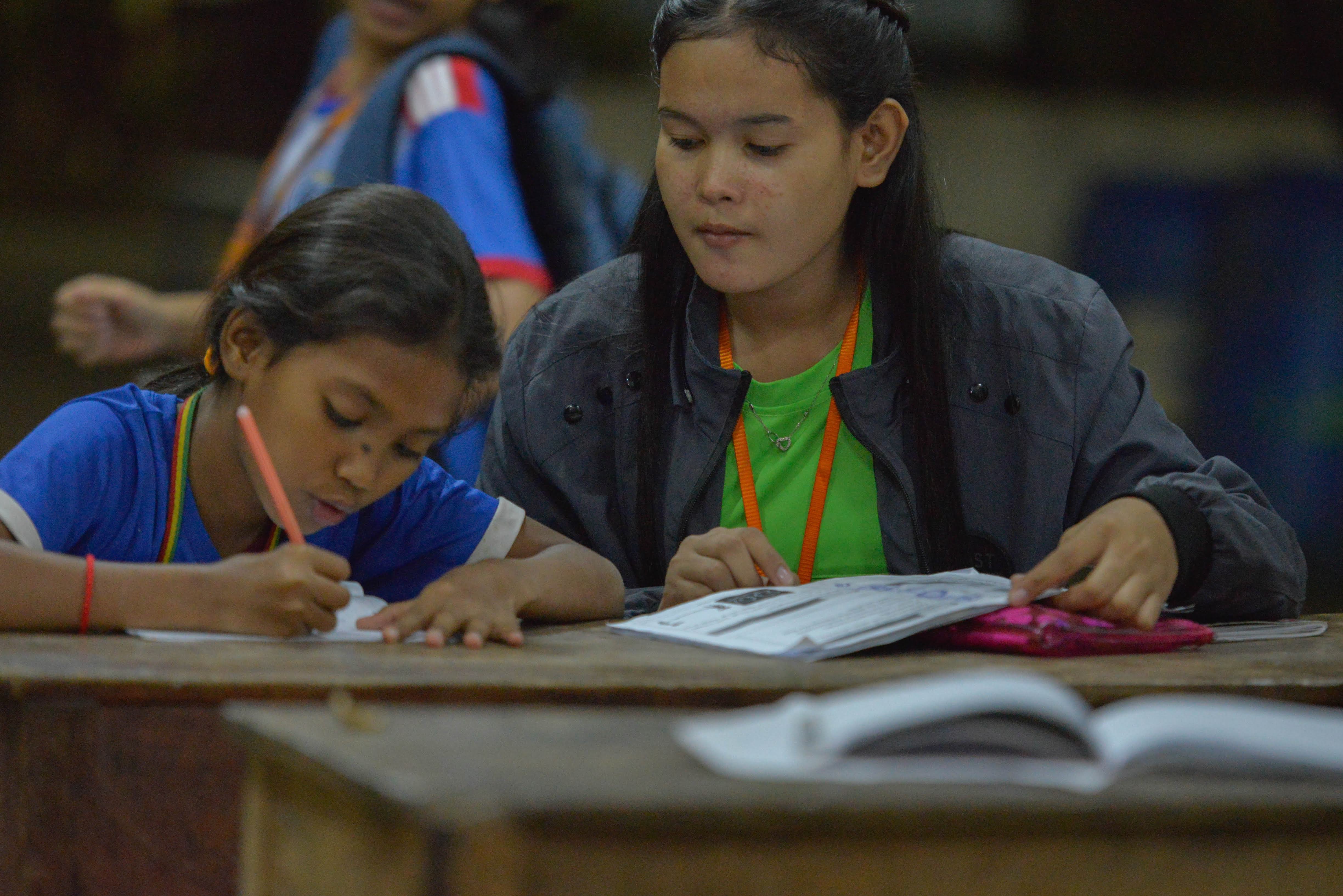
PSE, an NGO committed to supporting the poorest children in Cambodia
Children at the heart of our mission
PSE's mission is to lift children out of extreme poverty and lead them to a qualified, dignified and decently paid job through solutions adapted to their needs.
The PSE Charter to define our philosophy and ethics
The aim of this Charter is to define the philosophy and ethics of our Charity to assure its long term future. The objective of our Charity is to defend the fundamental rights of children throughout the world. Recognising that everyone can contribute to this objective, our Charity is both apolitical and non-denominational.
1 - Philosophy of the Charity
"Mankind owes to the child the best it has to give". (Geneva Declaration - SDN 1924)
Though the United Nations General Assembly unanimously approved the Convention on the Rights of the Child on 20th November 1989, in many cases, these rights are threatened or ignored.
A hungry child must be fed
A sick child must be treated
A mistreated child must be protected
An exploited child must be rescued
An abandoned child must be taken in
Every child should feel the affection of a loving look upon him.
PSE’s mission is to intervene for the benefit of those children in greatest distress both directly and by institutional actions.
Direct action includes, but is not limited to:
-
Food distribution
-
Providing health care centres
-
Creating protection centres
-
Help for education
-
Vocational training
Supporting families Institutional action includes, but is not limited to:
-
Information Sharing
-
Defending Children’s Rights with national and international authorities
-
Collaborating in specific projects such as construction of schools, of dispensaries, etc…
-
Development of education programmes
-
Supporting Non-Governmental Organisations who work with the philosophy to help children in distress.
2 - Ethics of the Charity
To the countries where we operate
The Charity respects the sovereignty of the countries in which it operates, it tries to integrate its work with the action plans of those countries and to develop its projects in close collaboration with local authorities whilst maintaining independence of action and control.
It endeavours to integrate with local partners as far as possible.
It cares about operating with modesty, always respecting local culture and acting without a conquering spirit.
To the children
All the Charity’s actions aim to enable the integration and fulfilment of every child in their natural geographic environment, respecting the social life and the culture of their country, and thus enabling them to master their own destiny.
It is essential that the children, often victims of violence and conflicts, find in the Charity a model of peace, friendship, harmony and stability.
While wanting to provide the poorest with high quality schooling, we don’t want elitism for a few.
To the volunteers
In their voluntary work, people don’t like to find constraints, conflicts and competition; they want to find a place of friendship and initiative.
This harmonious atmosphere is the strength of the Association as it allows everyone to give their best.
The Association’s structure must be flexible and adaptable. There are leaders and unifiers (not bosses) that provide everyone freedom to act. Where disputes or conflicts arise, everyone must prioritise unity and the interests of the Association above imposing their own ideas.
To the sponsors
The accounts must be transparent and available at all times to any sponsor who wishes to consult them.
The management is run with complete respect for the money entrusted to the Charity as well as ensuring its optimum utilisation for the benefit of the children.
While the Charity communicates facts, it avoids producing material that is unnecessarily shocking or making its audience feel guilty.
The financial resources come predominately from private donations (sponsorships, aid from NGOs or businesses) supplemented by public financing to allow new investments. The Charity respects the donors' wishes by fulfilling any commitments and through strict management of Charity.
The Charity keeps complete mastery and control of financing.
The Founders



